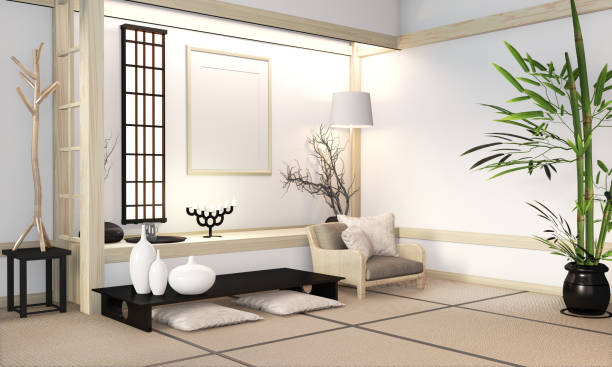Feng Shui Basics
Feng Shui for Different Rooms: Tailoring Feng Shui Principles to Enhance the Energy in Every Room of Your Home
Feng Shui is an ancient Chinese practice that harmonizes your living environment to promote balance, health, and prosperity. While the principles of Feng Shui apply universally, different rooms in your home have unique functions and energy needs. Tailoring Feng Shui principles to each room can enhance its energy and support your well-being. This comprehensive guide explores how to apply Feng Shui effectively in various rooms of your home, ensuring that each space contributes positively to your life.
1. The Living Room: Creating a Welcoming and Balanced Space
Overview:
The living room is a central space for relaxation, socializing, and family gatherings. Applying Feng Shui principles here can create a harmonious and inviting environment.
Key Feng Shui Tips:
- Positioning: Arrange seating to face the entrance of the room, allowing for a commanding view of the space. Avoid placing seats directly in line with the door to maintain comfort and control.
- Color Scheme: Use warm and inviting colors such as earth tones (beige, brown) to foster a cozy atmosphere. Accents of vibrant colors (red, orange) can add energy and excitement.
- Furniture Arrangement: Maintain a balanced arrangement by positioning furniture in a way that promotes easy movement and conversation. Avoid clutter and ensure that pathways are clear.
- Decor: Incorporate elements that enhance social interaction, such as comfortable seating and a central coffee table. Add plants or artwork to bring vitality and positive energy.
2. The Bedroom: Promoting Rest and Romance
Overview:
The bedroom is a sanctuary for rest and intimacy. Feng Shui principles in this room focus on creating a tranquil and nurturing environment.
Key Feng Shui Tips:
- Bed Positioning: Position the bed in a commanding position, where you can see the door while lying in bed. Avoid placing the bed directly in line with the door or under a window.
- Color Scheme: Choose soothing colors like soft blues, greens, or neutrals to promote relaxation and restful sleep. Avoid overly stimulating colors like bright red or orange.
- Lighting: Use soft, adjustable lighting to create a calming atmosphere. Avoid harsh or bright lights that can disrupt relaxation.
- Decor: Incorporate pairs of items (such as lamps or nightstands) to enhance romance and balance. Ensure that the space around the bed is uncluttered and harmonious.
3. The Kitchen: Fostering Health and Abundance
Overview:
The kitchen is often considered the heart of the home, symbolizing nourishment and prosperity. Feng Shui in the kitchen focuses on enhancing health and abundance.
Key Feng Shui Tips:
- Stove Positioning: Ensure the stove is in a visible position, ideally with the cook facing the entrance to the kitchen. Avoid placing the stove directly under a window or facing the door.
- Color Scheme: Use colors that stimulate appetite and vitality, such as warm yellows and greens. Avoid using too much black or dark colors, which can create an oppressive atmosphere.
- Cleanliness: Maintain a clean and organized kitchen to promote positive energy flow and prevent the buildup of stagnant energy. Regularly clean surfaces and appliances.
- Decor: Incorporate symbols of abundance, such as bowls of fresh fruit or plants. Avoid having broken or chipped items, as they can signify stagnation.
4. The Home Office: Enhancing Productivity and Focus
Overview:
The home office is a space for work and creativity. Applying Feng Shui principles here can enhance productivity and focus.
Key Feng Shui Tips:
- Desk Positioning: Position your desk in a commanding position, facing the door, to promote a sense of control and authority. Avoid sitting with your back to the door.
- Color Scheme: Choose colors that support concentration and mental clarity, such as soft blues or greens. Avoid overly stimulating colors that can create distractions.
- Lighting: Use adequate lighting to reduce eye strain and maintain focus. A combination of natural and artificial light works best.
- Decor: Keep your workspace organized and clutter-free. Use elements like plants or inspirational artwork to boost creativity and motivation.
5. The Bathroom: Ensuring Positive Energy Flow
Overview:
The bathroom is a space for cleansing and renewal. Feng Shui in the bathroom focuses on maintaining positive energy flow and preventing energy drain.
Key Feng Shui Tips:
- Door Management: Keep the bathroom door closed when not in use to prevent energy from escaping. Ensure that the door can fully open without obstruction.
- Color Scheme: Use light and soothing colors such as pale blue, white, or soft green to create a calming atmosphere. Avoid dark or heavy colors.
- Decor: Incorporate elements that symbolize cleanliness and freshness, such as plants or essential oils. Regularly clean and maintain the bathroom to keep energy flowing positively.
6. The Dining Room: Promoting Harmony and Connection
Overview:
The dining room is a space for gathering and nourishment. Feng Shui principles in this room aim to enhance harmony and connection among family members.
Key Feng Shui Tips:
- Table Positioning: Position the dining table centrally in the room, ensuring that everyone has a clear view of the entrance. Avoid placing the table directly under a light fixture or beam.
- Color Scheme: Use warm, inviting colors like earth tones or soft greens to create a welcoming atmosphere. Avoid overly bright or harsh colors.
- Decor: Incorporate elements that encourage conversation and connection, such as a centerpiece or comfortable seating. Ensure that the room is well-organized and clutter-free.
7. Final Thoughts on Feng Shui for Different Rooms
Overview:
Applying Feng Shui principles to different rooms in your home helps create a balanced and harmonious living environment. By tailoring your approach to each space’s function and energy needs, you can enhance well-being, productivity, and connection.
Key Takeaways:
- Room-Specific Strategies: Customize Feng Shui practices to suit the unique function and energy requirements of each room.
- Balance and Harmony: Aim for a balanced and harmonious environment by using appropriate colors, furniture arrangement, and décor.
- Continuous Adjustment: Regularly assess and adjust your Feng Shui practices to maintain positive energy flow and support your evolving needs.
By thoughtfully applying Feng Shui principles to each room, you can create a nurturing and supportive environment that enhances various aspects of your life. Embrace the art of Feng Shui to bring balance, prosperity, and harmony into your home.

